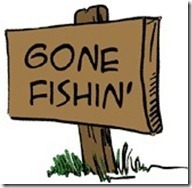Riley Adams's Blog, page 197
August 6, 2011
Thoughts on Creating Ebooks
 Creating an ebook has been a learning experience.
Creating an ebook has been a learning experience.
First off, for some reason I'm always surprised that non-writers aren't really aware of the major changes going on in publishing. I guess I shouldn't, but I'd think that as a reader, they'd realize that things were rapidly changing. I've certainly been aware of changes in the music and film industries.
But when friends and acquaintances ask me if I've got any releases coming out, I tell them, "Yes, I've got a book coming out in November—the third book in the Memphis series with Penguin. And I'm about to put out an ebook, myself." And you should see the reaction. They're very confused about my reasons for self-publishing. Actually, every one of them have been completely shocked. I just tell them that the industry is changing and I'm trying to just go with the flow and pursue both traditional and e-publishing.
Another thing I've noticed is how confusing the process is for someone who's just been casually reading about e-publishing for the last six months. You can find advice supporting nearly any position you want to take on price, platform, and formatting. The writer has to pick through this huge mess of services and information to find a match—who can edit? Who can design a cover reasonably? Who can do interior design (which is something I wanted—page design for my ebooks)? Is it better to upload to Smashwords? Through each platform separately? Where do I get ISBNs and should I get them? And e-publishing is changing daily.
It makes me think that there is definitely a job market there for ebook service Sherpas. I don't think it's something agents should go into unless they quit being agents, though, for obvious conflict of interest reasons. (If they want to sell you e-publishing services, are they actually going to try to send your manuscript out to traditional publishers? How thoroughly would that search for a publisher be?)
I've also noticed a reticence among some traditionally published writers to give e-publishing a go—although this reticence is being quickly eschewed to chase the money. :) But I've seen real arguments on some of my writing loops where authors who've already taken the plunge are fussing at other authors for not wanting to put more money into the upfront costs of the project for the long-term benefits.
That's because, I think, traditionally published writers haven't had to worry about all the mechanics of book production and suddenly picking up those costs is a shock. Many traditionally published authors also tend to quickly forget that ebooks are forever….they don't have the short shelf life of our physical bookstore novels. So any upfront investment is for a long-term harvest.
Have you taken the e-book plunge? What have you learned in the process?
August 4, 2011
Short Descriptions of Our Book
 A couple of weeks ago we visited family in Alabama.
A couple of weeks ago we visited family in Alabama.
My father-in-law offered to take the kids and me to see the new Harry Potter movie. Of course they were delighted (it was all sold out here in Charlotte) and we headed off to the theater.
We settled into our seats, put on our 3-D glasses, and I leaned over and asked my father-in-law if he'd seen part one of the movie, prepared to set the stage for him a little if needed.
"No," he said. "I haven't seen any of the movies."
I froze. "None of them? And you haven't read the books, either?"
"Not a one."
The previews were starting. I leaned closer and said, "Okay. Harry Potter is with the good guys. The bad guys want to kill everybody. It's good versus evil." It was all I had time to tell him.
He nodded. "Got it!"
Amazingly, although obviously he missed a lot of references and the whole wand thing at the end might have been confusing, he was able to really enjoy the movie and not be totally lost. Because it did boil down to a suspenseful question of whether the good guys were going to beat the bad guys. A familiar scene whether you're talking about Macbeth or Lord of the Flies or an episode of Law and Order.
The nice thing about writing traditional mysteries is that the theme is very basic and understandable. I can quickly summarize my books: someone rubs people the wrong way. This person is killed. A sleuth investigates and learns who did it.
But all books should be able to be fairly easily summed up. This is important for pitching a book in person or writing a query letter. It's also important if you're writing sales copy for a self-published book. Because readers usually want a book that sounds like something they can understand.
Looking at the New York Times' bestseller list right now, there are super-short descriptions of each novel. Some of them are better than others:
PORTRAIT OF A SPY, by Daniel Silva. (HarperCollins.) To stop a network of death, an international operative must reach into his violent past.
NOW YOU SEE HER, by James Patterson and Michael Ledwidge. Nina Bloom, who years ago changed her identity to save her life, is forced to confront the past and the killer she thought she had escaped.
THE CONFESSION, by John Grisham. (Knopf Doubleday.) A criminal wants to save an innocent man on death row, but he must convince the authorities he's telling the truth.
Can you sum up your story super-briefly? How have you boiled it down to just the bare bones?
August 3, 2011
Looking at the Big Picture When We Revise
 Hi everyone!
Hi everyone!
Today is my day on A Good Blog is Hard to Find. I'm posting about scenes that don't work and my approach for diagnosing the problem and finding a cure. Hope you'll join me!
August 2, 2011
Do I still want an agent? by Dorte H. Jakobsen
 Hope you'll welcome my friend, Dorte Jakobsen, here today. Dorte has a brand-new release, The Cosy Knave, her first novel (I'm about 1/3 of the way through, and it's a delight.) Welcome, Dorte!
Hope you'll welcome my friend, Dorte Jakobsen, here today. Dorte has a brand-new release, The Cosy Knave, her first novel (I'm about 1/3 of the way through, and it's a delight.) Welcome, Dorte!
It will hardly come as a surprise for any of Elizabeth´s readers that I found the inspiration for this guest post via one of her own links. Elizabeth, your blog is an invaluable source for the aspiring writer! And thank you for inviting me; it is a pleasure and an honour to be here.
In January I took the first, tiny step towards becoming a self-published author by sending out a collection of thirteen flash fiction stories. At that time I really believed I would continue searching for an agent for my humorous novel, "The Cosy Knave". And I did send off a handful of queries to various agencies in the spring, but without much success.
I know that some of you will think ´a handful is not many´, and you are right, of course, but one of the things I have learnt is that I absolutely, totally loathe writing queries. And the power of British & American agents and publishers also bothers me. Hardly any Danish writer uses an agent, and no matter which serious publisher we send manuscripts to, they will at least send us a standard rejection before or later. No one celebrates rejections, but at least you know where you stand. And honestly, how much would it cost the agent to send back a short ´no thank you´? (Some of them do, but it seems to be the minority).
So I don´t know exactly what happened when, but in April I sent off two queries and received this auto-reply:
"I have received your query/submission. You will not hear from me again unless I want to see more of your work. If you haven't received another email from me within 8 weeks, assume that I do not wish to read more of your work at this time."
And somehow my eyes fixed on those ´8 weeks´, and I made up my mind I had written my last queries (certainly for "The Cosy Knave", possibly for ever).
Well, the eight weeks are history, and on the first of August I published my first full-length novel via Amazon and Smashwords. Now the big question is: do I still want an agent?
Honestly, I am not so sure. It would be nice to have a traditional publisher who would print and distribute paper books for me, someone who could add weight and credibility to the upstart from tiny Denmark, plus an experienced editor I could discuss certain manuscript points with, but an agent? Someone who could take 15 % of my income for doing things I have struggled hard to learn over the last six months? I have already learnt that though I prefer Smashwords in some ways, I definitely need Amazon (well, their customers that is). I have learnt the power of offering short stories and flash fiction cheaply or for free, getting some reviews in return. I have also learnt a lot about the generosity of blog friends, and which social media that seem to suit me. I can recommend Facebook and Goodreads, I am not quite so sure I really feel at home on Twitter yet.
If my debut novel turns out to be a total flop, I may reconsider the agent question (though it will probably be next to impossible to get one in that case), but on the whole I really like being my own master. I listen to the excellent advice I get from friends and fellow writers, but basically I can do exactly what I like whenever I want to. So even though an agent might land me more money in the long term, I am probably too stubborn to give up my independence now. And 15 % - forget it!
 Dorte Jakobsen is a Danish teacher who lives in the beautiful region of Thy. In her spare time she reads and writes crime fiction. The Cosy Knave released August 1. You can find Dorte on her blog, and on Facebook.
Dorte Jakobsen is a Danish teacher who lives in the beautiful region of Thy. In her spare time she reads and writes crime fiction. The Cosy Knave released August 1. You can find Dorte on her blog, and on Facebook.
The Cosy Knave is priced at $3.99, but if you buy at Smashwords and use this coupon code: PN22N, you get a 25% discount. A synopsis: The vicious attacks begin when the prodigal son of Knavesborough returns to the sleepy village after forty years in Argentina with fame and fortune. No wonder that spiteful Rose Walnut-Whip is killed, but when the violence escalates, Constable Penrose knows he needs help from his fiancée, librarian Rhapsody Gershwin.
"The Cosy Knave" is available on Smashwords.com, Amazon.com
and Diesel ebooks.
August 1, 2011
Google+
 As someone who tries really hard to go with the flow, I've gone ahead and signed up on Google+ (Google's foray into Facebook-style social media.) I'm Elizabeth S Craig there.
As someone who tries really hard to go with the flow, I've gone ahead and signed up on Google+ (Google's foray into Facebook-style social media.) I'm Elizabeth S Craig there.
I know…we've all got social media fatigue. At first it just exhausted me even thinking about building up a brand on another platform. And I wondered how well I could keep up with it. And I wondered if I was getting overexposed.
The good news is that Google+ is a good application for those of us who are tired of doing this. It's fairly intuitive. Friends are easy to find and make and group together. It's a friendly place. There seem to be a lot of publishing professionals there. If you've ever been on Facebook, this will seem like a piece of cake.
It's easy to start there, because half of us already have a Google profile, anyway. I have one from Blogger and my Gmail account. All I had to do was brush up my profile and I was set to go.
So far, I also haven't seen the gotcha mentality that has frustrated me with Facebook. I felt Facebook was run by little kids who were determined to make me interact in ways that didn't make me comfortable. In the past, Facebook has—to me, personally—shared my cell phone number on my info page when I'd hidden it, turned on chat when I'd disabled it, changed all my privacy settings several times when they automatically updated my account…the list goes on. I haven't yet seen these types of shenanigans at Google+. So far, it seems like Facebook for grownups.
One thing I like about Google+ is the way that I can share updates with certain types of people. As y'all know, I share writing links to help connect writers with resources. Writers love this! My readers and librarian friends aren't so enthused. On Google+, I have my friends divided into different groups (or circles)—I have one for writers, one for readers, one for librarians. When I have a writing link to share, I can easily choose to only share it to writers. That makes me feel like I'm not getting on everyone's nerves.
Google will make sure that our Google+ page ranks pretty high in their search engine for searches of our name….another reason I jumped onboard.
If you're new to Google+, feel free to go to my profile and raid my friend list. It's mostly writers. And check out Debbie Ohi's list of literary types on Google +. Fill out your profile and make an update of some kind, or comment on someone else's. It's easy to start out…and, actually, it's new to everybody. Still a couple of bugs for Google to work out (I think their mobile app is a little clumsy), but the community there seems solid. Here are some how-to links for Google+: How to Use Google Plus , Google Plus for Writers, Debbie Ohi's great post on Google Plus,
Have you gotten on Google+? If you like, share your profile link and we can be friends there. :) If you're on it, what do you think?
Hope you'll come back tomorrow when I host my mystery writing friend Dorte Jakobsen. She'll be answering the question, "Do I still want an agent?"
July 31, 2011
Illustrating a Point
 Our family took a short vacation during my blogging break and tried to escape the blistering heat by visiting the mountains.
Our family took a short vacation during my blogging break and tried to escape the blistering heat by visiting the mountains.
We stayed in a town with a reputation for quirkiness. And quirkiness is something that our metro area of Charlotte, North Carolina, isn't known for (Charlotte, a banking town, is fairly staid.) I thought I should give the kids a heads-up that we weren't in Charlotte anymore.
We were sitting outside a vegan restaurant with an organic garden eating unusual food that I couldn't pronounce. "What's interesting about this town," I said, "are the people. They're pretty quirky. It's a very artsy town."
"You're an artist," said my son.
"Well, yeessss….but not like these folks."
"Because you don't have tattoos and piercings and pink hair?" he asked.
"I guess. But also because these people act a little offbeat, too."
"What's offbeat?" asked my daughter, squinting.
I was floundering, not sure how to express the ways the town we were in was cool, interesting, and different when a man on a motorcycle puttered by. He wore an eye-catching, splashy, sparkly outfit. His motorcycle pulled a trailer carrying chicken coops full of squawking chickens.
"Oh! Got it," said my son, watching the man go by.
Which is exactly why showing is so much more effective than telling. (It's also why I wish I could paint!)
How do you show instead of tell?
July 30, 2011
Twitterific

![Terry3_thumb[1]](https://i.gr-assets.com/images/S/compressed.photo.goodreads.com/hostedimages/1380447585i/1701687.png)
I'm back! I missed everybody! Hope everyone has had a good last week and a half. :) I'll start back with a double-edition of Twitterific—below are all my tweets from the last two weeks.
Hope you'll enter this month's WKB giveaway for a chance to win Donald Maass' excellent Writing the Breakout Novel, from our friends at Writer's Digest. Enter the drawing by signing up for the WKB newsletter.
Finger Lickin' Dead released June 7th. Hope you'll consider it if you enjoy mysteries, or know someone who does.Download it on Kindle: http://amzn.to/kh7MAp Mass market paperback: http://amzn.to/lfUE2N ($6.99)
Re-querying: http://bit.ly/oylg9i
Ten Tools for Author Success: #3, Build Your Platforms: http://bit.ly/mShfRa
10 Reasons Writers Might Drink: http://bit.ly/q8uoKi @elspethwrites
"The Help" – A Happy Ending? (A story deconstruction): http://bit.ly/qQvaqo
Voice tips from the pros: http://bit.ly/o2GAk3 @AngelaAckerman
Foyles Bookstore, 105-Yrs-Young, Seeks Partner for Long Walks, Fun, Int'l Expansion: http://bit.ly/piokD2
We Retreat To Advance: http://bit.ly/qe9pkn
Finding balance while juggling life: http://bit.ly/pnTg87
To Hyphenate or Not To Hyphenate? http://bit.ly/mVvSoj @authorterryo
Business Writing: What Is It Exactly? http://bit.ly/p3RngW
Letting Go to Help Our Book-Babies Grow: http://bit.ly/pWoCpe @WriteAngleBlog
How 1 writer makes a living writing online: http://bit.ly/niLQ07
For writing quotes and inspiration: Advice to Writers: http://bit.ly/kaOOvq @AdviceToWriters
Introduction to BSP: http://bit.ly/nVapmQ
From Scratch or Script: Writing vs. Acting: http://bit.ly/ntDwfq @BTMargins
How to Use Speech Recognition Software – 5 Tips for Writers: http://bit.ly/nxTzIN
Are comfortable, middle-class people no longer a legitimate subject for serious fiction? (Guardian): http://bit.ly/oXluY6
5 writing lessons 1 writer learned from dating: http://bit.ly/q0xeD1
Why are our superlatives so boring? (Chicago Tribune): http://bit.ly/prGbK2
Finding the Threads (or: How to Eat an Elephant): http://bit.ly/oJzgF4 @CherylRWrites
Chat with 5 New York Published Authors Gone Indie: http://bit.ly/pmdrz9 @HowToWriteShop
Online Marketing for the Middle Grade Audience: http://bit.ly/otz9Bz
What makes a villain? Hero in villain's clothing: http://bit.ly/oHiT2Y
Brave New E World: http://bit.ly/n35FVG
One illustrator's process: http://bit.ly/mYx9cc
The Life List Club: http://bit.ly/qoZvYc @jhansenwrites
Stories Are How We Make Sense of Life: http://bit.ly/rukLcx
3 Tips from "Guys and Dolls": http://bit.ly/oVahMG @LauraPauling
10 great sites for writers: http://bit.ly/nJlDpZ @AJackWriting
When to name your characters: http://bit.ly/pqw3UE @elspethwrites
The secret bookshop: http://bit.ly/quVS1J
Sign up for the monthly WKB newsletter for the web's best links and interviews: http://bit.ly/gx7hg1
Finding A Character's Perfect Match: http://bit.ly/qaWS0o
Finding Confidence In Yourself: http://bit.ly/nZCJHM
Lessons on a Set: http://bit.ly/qSZcsn
How to turn your iPad into a writing machine: http://bit.ly/q6xkkW
An explanation of earning back your advance: http://bit.ly/ortO1n @aswinn
Book publicity isn't a sprint--it's a marathon: http://bit.ly/op0vpD @spunkonastick
How To Avoid Barriers That Weaken Your Headlines: http://bit.ly/n5I4GE @
"Onlooker" characters: http://bit.ly/nksVJF @mkinberg
Tips for writing unsympathetic characters that readers will like: http://bit.ly/pCc1uI
The 4 Steps of a Writer's Journey: http://bit.ly/o0OR1B
Search my tweets-- http://dld.bz/KPgS
Want to start a book club? 7 questions to get you started: http://bit.ly/ou5Hf9
5 Ways NOT to Use Twitter for Freelancers: http://bit.ly/nItfaM
How to keep your creativity alive during your summer vacation: http://bit.ly/nGYQOW
Ebook Buyer's Guide: Know When to Buy an eReader and When to Wait: http://bit.ly/ob1njv
Building Coherent Scene Transitions: http://bit.ly/p3vQMr
Do You Write 750 Words Per Day? http://bit.ly/pClEGv @marianschembari
Deus Ex Machina: Latin for "Don't Do This in Your Story" : http://bit.ly/ntOVaa @KMWeiland
Why every novelist is holding out for a hero (Guardian): http://bit.ly/qOI7Ex
An agent answers questions on writing picture books: http://bit.ly/n9X2X7
4 qualities of a good title: http://bit.ly/pZwJYr
Joe Konrath on the potential Borders liquidation: http://bit.ly/oYj8LK
Emotional and Psychological Dynamics: http://bit.ly/pvT0Ro
A helpful thesaurus for settings, emotions, symbolism, & weather--now with character traits: http://bit.ly/eIGRMO @AngelaAckerman
Squeezing Writing In Around Life: http://bit.ly/oIlPra
Make Life Simple: Consolidate Your Sites: http://bit.ly/qSQklM
5 Lessons 1 Writer Learned from a Best-Selling Author: http://bit.ly/qUzaLO @tglong
Top 15 Books On Writing: http://bit.ly/qPH9HK
Promo Tool for Writers--Google Keyword Tool: http://bit.ly/p1jxSn
Advice for aspiring writers: http://bit.ly/ncpxI3
The Death of Print, Part Whatever:
July 20, 2011
A Short Break
 Hi everyone! This is the time of year when I take a short blogcation in order to catch up with family, host guests, etc. I'm also spending some time revising that book that I wrote five years ago. I also have some pass pages to proof and a new book to start (May deadline, but may as well get cracking!)
Hi everyone! This is the time of year when I take a short blogcation in order to catch up with family, host guests, etc. I'm also spending some time revising that book that I wrote five years ago. I also have some pass pages to proof and a new book to start (May deadline, but may as well get cracking!)
I'm going to leave you with links to some of my most popular posts on the blog, courtesy of Google Analytics. :) I'll be back in a week and a half.
Writing Worksheets and Other Tools
Tips for Restless Writers
Answering a Few Questions about the Search Engine
Promote Yourself, Not Your Book
See you soon!
July 19, 2011
A Story Within a Story by Cricket McRae
 Thanks for hosting me here at Mystery Writing is Murder, Elizabeth!
Thanks for hosting me here at Mystery Writing is Murder, Elizabeth!My recently released Home Crafting Mystery, Wined and Died, is the fifth in the series. All of my contemporary cozies feature colonial home crafts as the backdrop to the murder mystery, and in this one, it's mead making.
Once I decide on the home craft, the rest of the story comes out of that. Then the subplots emerge as a matter of course. In Wined and Died, Sophie Mae Ambrose and her husband are caring for their housemate's precocious twelve-year-old daughter, Erin Bly. Her subplot does more than flavor the rest of the story. It starts the whole thing, cycles throughout, and ends the book as well.
See, Erin is writing a novel.
I'm not sure how that happened, but when it cropped up in Chapter One, I went with it. It fit with her character, offered opportunities for both conflict and humor, allowed her to be involved in the amateur investigation more than usual, drove Sophie Mae batty, and in the end her jottings afforded a piece of critical information at the right time.
Throughout Wined and Died she follows everyone, writing down what they say and making notes, all the while trying to decide what she's going to write her book about. Sophie Mae gives her plenty of terrible writing advice because Sophie Mae hasn't a clue about how to write a novel.
At the end of the story, I felt Erin needed to share what she had decided to write about, and that meant coming up with a short synopsis that could reasonably be connected to what the reader had just experienced in Wined and Died.
What fun! I sat down, tuned into my inner twelve-year-old, and drew a right-brain-inspired chart full of free associations from events and random details in the book. A YA fantasy plot gradually emerged. It showed how Erin might have creatively interpreted the various scribblings in her notebook, though to literal-minded Sophie Mae the youngster's story has nothing to do with any of their recent adventures.
Mise en abyme is the French term for self-reflexive embeddings in artwork. It refers to the idea of two mirrors facing each other and can be visual, written, or--as in Hamlet--the famous play within a play. I didn't really think about how I was using this age-old device, only that it functioned well. And I sure wasn't thinking about actually writing a YA novel. But now that thought is fluttering at the back of my mind as the result of working out that mystery subplot.
Writers get ideas from everywhere, it seems. Have you ever gotten a different story idea from a story you're writing? In honor of the recent release of Wined and Died, you can enter to win a FREE Author Website ($900 value!) from the creative folks at Bizango Websites for Writers until July 29, 2011. For more details and information on how to enter, please visit my blog at www.hearthcricket.com. For more information about me or the Home Crafting Mystery Series, check out www.cricketmcrae.com.
In honor of the recent release of Wined and Died, you can enter to win a FREE Author Website ($900 value!) from the creative folks at Bizango Websites for Writers until July 29, 2011. For more details and information on how to enter, please visit my blog at www.hearthcricket.com. For more information about me or the Home Crafting Mystery Series, check out www.cricketmcrae.com.
A former resident of the Pacific Northwest where her novels are set, Cricket McRae has always dabbled in the kind of practical home crafts that were once necessary to everyday life. The magical chemistry of making soap, the satisfaction of canning garden produce, and the sensuout side of fiber arts like spinning an knitting are just a few of the reasons these activities have fascinated her since childhood. As a girl she was as much a fan of Nancy Drew as of Laura Ingalls Wilder, so it's no surprise that her contemporary cozy series features a soap maker with a nose for investigation. For more information about Cricket or the Home Crafting Mystery Series, check out http://www.cricketmcrae.com/ .
********************
Thanks so much for your post today, Cricket! You've got me looking forward to trying a story-within-a-story, myself! Looks tricky...but fun. :)
July 18, 2011
Productivity
 I've been thinking a lot about productivity lately.
I've been thinking a lot about productivity lately.
This is probably because it's summertime and my schedule is pretty much non-existent.
I'm getting work done every day, but it's not at the same times of day as when the kids were in school. And it's frequently really early.
I read this interesting article called Creative Kryptonite and the Death of Productivity.
Jonathan Fields talks about what happens when we get distracted by social media during our day. There were 2 things in particular that he focused on. One was that we receive "intermittent reinforcement" whenever we get an email, Twitter, or Facebook alert—an actual Dopamine squirt that gets us hooked.
The second thing he mentioned in his post was the Zeigarnik Effect. As Jonathan put it:
Every time we begin a conversation by text, email, twitter, Facebook or Google+, it's like we're opening a new loop. One that, until completed, compels us to want to finish the conversation. To keep checking and responding until the loop has been closed.
Problem is, in a hyperconnected world…the loops never close.
Of course, we all enjoy what we're doing. I know I do. If I had it my way, large portions of my day would be spent catching up with everyone on their blogs, reading tweets, and looking at friends' status updates.
But….I sure wouldn't get anything done!
My solution to this is usually pretty extreme:
Close all my computer windows except for Word.
Put my phone across the room where I can hear it if it rings, but can't check emails, Twitter, etc. on it.
Leave the house with my laptop and go to a place that doesn't have wi-fi (increasingly more difficult to find.)
Write in a notebook (a real notebook) until I meet my goal.
And then I give myself a reward. :) I have to perform for treats.
How you y'all get things done with all the temptations of social media?



